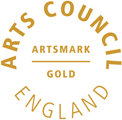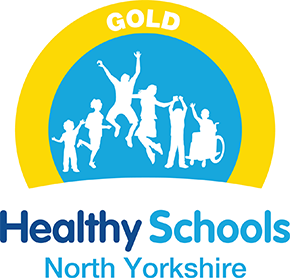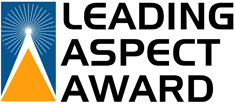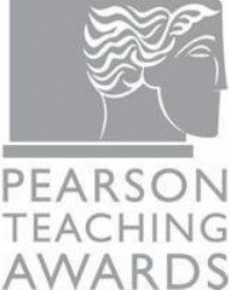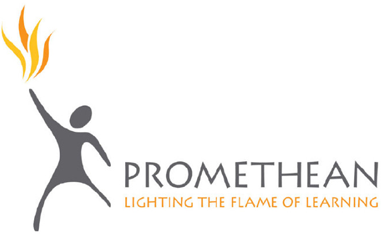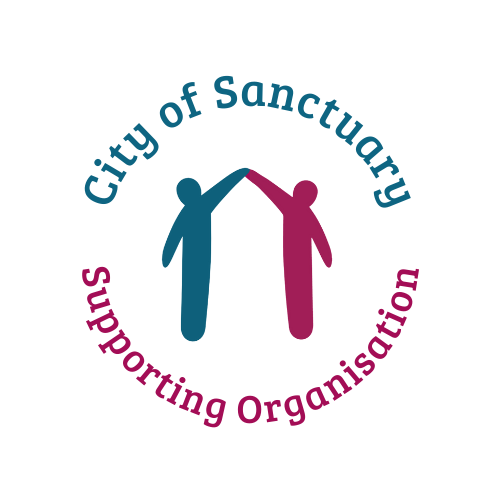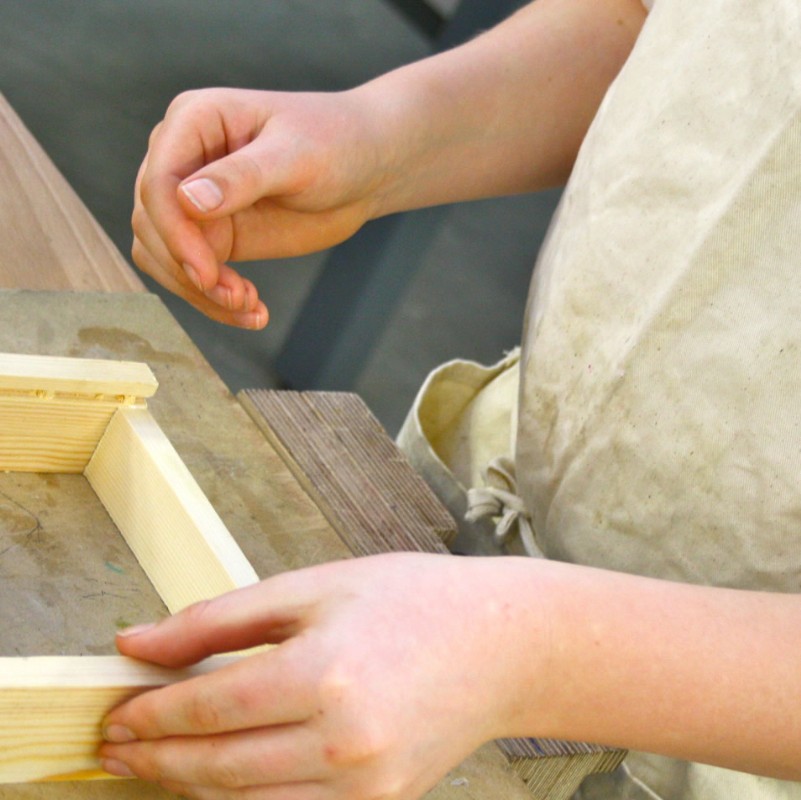 Design and Technology:
Design and Technology:
Subject Information Overview
Below is a visual overview of the content available on this page. Click the appropriate title to view the relevant section
Curriculum
Area Staff Curriculum
InformationCurriculum
OverviewExam information for GCSE
qualifications in this Subject AreaKnowledge
Organisers
Curriculum Area Staff
|
Andrew Graham (CAL Technology and Art) Julia Burdon |
Jade Deacon |
Should you require more information about this subject area please contact:
Name: Mr A Graham
Position: Curriculum Area Leader
Email: ag@selbyhigh.co.uk
Curriculum INFORMATION
Our curriculum has been developed with the goal of equipping students with a range of practical knowledge, skills and understanding, across the three DT disciplines. Skills and knowledge are delivered through engaging practical elements and design & make projects using a range of materials & ingredients.
In Product Design each topic area covers the design cycle where we investigate the design problem, create and communicate a range of unique and interesting designs, manufacture a product gaining a range of practical skills before evaluating the product and personal performance in the area.
In Y7 topic areas and lessons we study the three main resistant materials: wood, metal and plastic using a range of skills both traditional hand making techniques such as cutting and finishing materials but also more modern skills such as CAD/CAM and the use of the department's laser cutters. In Y8 we develop and build on the skills from Y7 using a range of new processes and materials including brazing of mild steel, dip coating, electronic circuit board and shaping plastic through heat.
During Y9 we consolidate the skills from Y7 and Y8 introducing new processes of sublimating onto acrylic and developing their independence, knowledge and resilience encouraging students to take a more active and creative role in their work and outcomes produced. We aim to give them the knowledge to be able to select materials and processes for their properties and characteristics and how these might affect their product.
Textiles: In Y7 pupils will design and make a ‘Creative Creature’ soft toy with a skills focus of surface decoration. Pupils will have the opportunity to develop basic skills using techniques such as hand embroidery, applique & various embellishment methods. Pupils will learn how to construct their Creative Creature through pattern making and cutting . Pupils will also be introduced to the sewing machine with the aim to develop confidence & control.
During Y8 pupils will move onto exploring print & dying methods through creating a cushion in the culture project ‘Day of the Dead’. Students will develop their CAD skills creating repeat pattern & using sublimation printing, along with more traditional printing techniques. Pupils will develop more complex construction methods using patchwork, envelope folds and including fastening techniques along with applying decorative trims.
In Y9 pupils will combine techniques and processes learnt across KS3 to create product inspired by the theme ‘Festival Merchandise’. Students will have the opportunity & freedom to build on previous learning using techniques and processes learnt across KS3 and experiment with new techniques such as fabric painting, fabric manipulation and free motion embroidery.
Food Tech: In year 7 pupils will be introduced to the health and safety requirements and basic skills of Food Technology. They will confidently and independently be able to weigh and measure their own ingredients. Pupils will demonstrate a range of preparation techniques, to make dishes such as fruit crumble, bread rolls, curry and lasagne. Pupils will throughout the year learn how to adapt recipes to suit consumer requirements, seasonality and cost of living.
In year 8 pupils will move on to look at the impact of the cost of living, food provenance, food poisoning and special diets. They will further develop their practical skills by producing dishes such as dutch apple cake, mexican pulled chicken and cottage pie, as well as experimenting with different methods of making pastry and producing fruit tart and vegan sausage roll.
The consolidation of skills learnt in the first two years will move students into year 9 with a very solid foundation to really expand their culinary skills. The focus of year 9 will be on really understanding the food; the reasons why food is prepared and presented in different ways, the different food products there are available on the market and the benefits and disadvantages of them. They will produce dishes such as sweet and sour, fish cakes and panna cotta. The pupils will complete the year by completing a design task which will bring together everything they have learnt.
A large part of our intent is to engage and excite students interests but also to develop core life skills such as:
- Independence - use of the independent zone and allowing students to follow their own direction is central to short, medium and long term planning across the subjects.
- Problem solving -with making and design come problems; students are encouraged to make mistakes, learn from their mistakes, show resilience and become more reliant on their own choices.
- Time and resource management
Our intent works to prepare students for: Level 2 qualifications (and beyond) within the department with the skills and knowledge as a foundation to build on during their chosen KS4 route. practical enrichment and proficiency to be able to explore creative and engaging extra-curricular hobbies and interests, live healthy lifestyles through knowledge and experience of planning and delivering balanced meals, perform basic home maintenance through knowledge of a range of tools and materials and growing the life skills to enable them to be successful in their chosen path.
CURRICULUM OVERVIEWs
Below is a summary overview of the topics and their content that will be studied in each term by each year group. For more information about each topic, get your child to visit learning journeys and resources on the school online learning platform - Ready Steady Learn.
Product Design
| Year Group | Term 1 | Term 2 | Term 3 | Term 4 | Term 5 | Term 6 |
| 7 & 8 |
Year 7 and 8 have three projects that run over the year on a rotational basis. Projects 1 and 3 follow a standard design cycle of Research, Design, Manufacture and Evaluate. Project 2 follows an iterative design process where students learn and problem solve through modelling and development. |
|||||
| 7 |
Project 1 - MDF Frame building & CAD/CAM |
Manufacturing skills developed in the production of the pencil case product followed by a written evaluation & suggested improvements and end of unit test.
|
Project 2 - Metal Manipulation & Enamelling |
Manufacturing skills developed in the making of a functional piece of copper jewellery, evaluation & suggested improvements and end of unit test. |
Project 3 - CAMS & Mechanisms |
Manufacturing skills developed in the production of a biomimicry inspired mechanical moving toy using CAMS and followers. The product is then evaluated and students sit an end of unit test. |
| Assessment details |
Booklet assessment against marking criteria |
Online End of unit test |
Booklet assessment against marking criteria |
Online End of unit test |
Booklet assessment against marking criteria |
Online End of unit test |
| 8 |
Project 1 - CAD/CAM Lighting |
Manufacturing skills developed include a detailed use of CAD/CAM, use of a soldering iron to manufacture a working LED followed by a written evaluation & suggested improvements and end of unit test. |
Project 2 - Joining Metal structures |
Manufacturing skills developed include bending and shaping of mild steel, permanently fixing mild steel using the brazing hearth and dip coating metals, written evaluation & suggested improvements and end of unit test. |
Project 3 - Acrylic Clock |
Manufacturing skills developed include skilled use of hand cutting tools, use of the heat strip to bend and shape acrylic followed by a written evaluation & suggested improvements and end of unit test. |
| Assessment details |
Booklet assessment |
Online End of unit test |
Booklet assessment |
Online End of unit test |
Booklet assessment |
Online End of unit test |
| 9 |
Passive Amplification - Materials & Manufacturing Processes Knowledge Year 9 students are in Product Design once every 2 weeks. During the year they will design and manufacture a passive amplification device using a range of materials, tools & equipment and processes. |
|||||
| Sketch Design Ideas, of passive amplifier product in both 2D and 3D presentation of work, rendering and communication through annotations.
|
Manufacturing skills developed through the main body of the product, overlearning of skills from Y8 and developing independence. Materials Selection based on Properties and Characteristics |
Manufacturing Cont. Looking at CAD/CAM and development of surface decor and laser cutter designs. Independence checkpoint - Self Evaluation of level of Independence shown throughout practical.
|
Manufacturing Cont. adding a protective and aesthetic coating.
Knowledge of processes used and in particular sublimation printing.
|
Manufacturing Cont. modelling and creation of a functional handle/stand using card prototyping, acrylic and strip heating process. Independence checkpoint 2 - Self Evaluation of level of Independence shown throughout practical. |
Manufacturing Cont. assembling handles to products through use and knowledge of standard components.
Evaluation and Improvements of Practical Outcome & Personal Performance
|
|
| Assessment details |
Design ideas marked against assessment criteria. |
Materials selection assessed against criteria. |
Independence selection assessed against criteria |
Manufacturing processes selection assessed against criteria. |
|
Evaluation and end product marked against agreed criteria. |
| OCR Engineering Design |
Exam Specification - OCR Engineering Design Y10 - Students will complete a practice Controlled Assessment (CA) project looking at the main areas of the exam specification. During terms 2/3 they will start the first two Units of work R038 (Exam) and R039. |
Exam Specification - OCR Engineering Design Y11 - Students will undertake NEA UNit R040 and prepare fully for R038 - Externally Assessed 1hr 15 Exam |
||||
| 10 |
NEA Preparation Project 1 - LED Lamp
|
OCR NEA Unit: R039 Communicating Designs |
NEA Preparation Project 2 - Troncket Boxes |
|||
| Assessment details |
NEA assessed against OCR Eng Design Criteria |
NEA assessed against OCR Eng Design Criteria |
NEA assessed against OCR Eng Design Criteria |
|||
| 11 |
OCR NEA Unit: R040 Design, Evaluation & Modelling |
OCR NEA Unit: R040 Design, Evaluation & Modelling |
Exam Unit Prep: R038 Principles of Engineering Design
|
|||
| Assessment details |
NEA assessed against OCR Eng Design Criteria in accordance with CA guidelines. |
NEA assessed against OCR Eng Design Criteria in accordance with CA guidelines. |
R038 Exam to be sat in the Summer.
|
|||
Food Technology
| Year Group | Term 1 | Term 2 | Term 3 | Term 4 | Term 5 | Term 6 |
| 7 |
Food skills - introducing equipment, health and safety, weighing and measuring. |
Vegetable cuts, food wastage, use by dates and rubbing in method. Introduction to sensory analysis.
|
Eat well guide and healthy eating, issue of obesity in society. |
Cross contamination, correct storage of foods, risks associated with reheating foods. Development of sensory analysis techniques. |
Identification of different ingredients within a recipe. Comparison between dry and fresh pasta. |
Team working within a kitchen environment and basic job roles. Introduction to time plans and dovetailing. |
| Assessment details |
Practical assessment |
Practical assessment on vegetable cuts |
Practical assessment |
Written assessment |
Practical assessment |
Practical assessment |
| 8 |
Recap of health and safety, food poisoning, stock rotation and storage of ingredients and prepared meals. Different cooking methods of eggs. |
Experimentation with different types of pastry producing both sweet and savoury dishes. Vegan diets. |
Investigation into special diets and how to meet the needs of different consumer groups. |
Different cuts of meat available, how to produce balanced meals, link to Mexican foods. |
Food provenance, food wastage and nutritional value of foods. |
Impact on the cost of living and the prices of different ingredients, ready steady cook challenge. |
| Assessment details |
Practical assessment |
Practical assessment |
Oracy presentation on special diets |
Practical assessment |
Written assessment |
Practical assessment |
| 9 |
Recap health and safety with further investigation of electrical equipment. Food labelling and the law. |
Comparison of shop bought vs homemade, further investigation in sensory analysis and the vital role it can play. |
Investigation of the nutritional needs of athletes and the elderly. |
Research into 5* restaurant presentation, development of presentation skills, gelatinisation. |
Healthy eating vs cost and the impact this has on consumers. |
Research, design and manufacture challenge focusing on two different consumers. |
| Assessment details |
Practical assessment |
Practical assessment |
Practical assessment |
Practical assessment |
Extended piece of writing assessment |
Practical assessment |
| 10 |
Food poisoning, allergies and intolerances, food labelling, EHO and The food safety Act. Level 2 food hygiene assessment. |
Equipment, workflow, dress code, stock control, customer needs and wants and nutritional impact of different cooking methods. |
Food labelling, allergies, environmental issue. |
Presentation skills and sensory analysis. |
Nutritional requirements and the function of macro and micro nutrients on the body Mock unit 2 controlled assessment. |
Mock unit 2 controlled assessment and mock unit 1 examination. |
| Assessment details |
Continued examination questions throughout work. |
Continued examination questions throughout work.
|
Continued examination questions throughout work. |
Continued examination questions throughout work.
|
Mock unit 2 |
Mock unit 2 assessment and mock unit 1 examination. |
| 11 |
Unit 2 controlled assessment coursework |
Unit 2 controlled assessment coursework
|
Consolidating learning and revision for unit 1
|
Consolidating learning and revision for unit 1 |
Consolidating learning and revision for unit 1 |
|
| Assessment details |
Unit 2 coursework worth 60% of overall grade. |
Unit 2 coursework worth 60% of overall grade.
|
Continued examination questions throughout work. |
Continued examination questions throughout work. |
Unit 1 examination worth 40% of overall grade (terminal examination). |
|
Textiles
| Year Group | Term 1 | Term 2 | Term 3 | Term 4 | Term 5 | Term 6 |
| KS3 |
Students will have 1 lesson per fortnight in Textiles - 18 lessons |
|||||
| 7 |
Creative Creatures- analysis of brief, hand embroidery skills development |
Creative Creatures- hand embroidery skills development, design ideas
|
Creative Creatures- pattern creation and cutting |
Creative Creatures- Stitching detail to the creature fronts using sewing machine and hand embroidery |
Creative Creatures- Stitching detail to the creature fronts using sewing machine and hand embroidery |
Creative Creatures- Construction of final outcome, Evaluation |
| Assessment details |
Booklet assessment |
Practical Skill assessment- Hand Embroidery |
Booklet assessment |
Booklet assessment |
Booklet assessment |
Practical outcome assessment |
| 8 |
Day of the dead Cushion- Analysis of brief, research into festival, design ideas, sewing machine introduction |
Day of the dead Cushion- Print and dying workshops- CAD repeat pattern, sublimation printing |
Day of the dead Cushion- Print and dying workshops- Tye dye techniques, block printing/ stencilling |
Day of the dead Cushion- Construction of final outcome- patchwork |
Day of the dead Cushion- Applying surface decoration to the fabric skull design |
Day of the dead Cushion- Stitching fronts and backs together. Evaluation of work |
| Assessment details |
Booklet assessment |
Booklet assessment |
Practical Samples Skill assessment |
Booklet assessment |
Booklet assessment |
Practical outcome and final evaluation |
| 9 |
Festival Merchandise Analysis of brief, research, introduction to the sewing machine |
Festival Merchandise Introduction to surface decoration workshops and experimentation |
Festival Merchandise surface decoration workshops and experimentation |
Festival Merchandise Design development/ final design, construction of final outcome |
Festival Merchandise Construction of final outcome |
Festival Merchandise Completion of final outcome and evaluation |
| Assessment details |
Booklet assessment |
Booklet assessment |
Practical Sample Assessment |
Booklet assessment |
Booklet assessment |
Practical outcome and final evaluation |
| 10 |
Coursework Portfolio Unit 1 Surfaces: Aquatic Introduction to course and use of the sewing machines. Analysis of the brief, Primary research, CAD development, Recording through mark making, practical workshops developing techniques |
Coursework Portfolio Unit 1 Surfaces: Aquatic Practical workshops developing techniques, artist research, student led development of ideas, initial designs |
Coursework Portfolio Unit 1 Surfaces: Aquatic Development/ refinement of ideas, final design, making of final outcome |
Coursework Portfolio Unit 1 Structures Analysis of the brief, written project proposal, Primary research, CAD development, Recording through mark making, practical workshops developing techniques |
Coursework Portfolio Unit 1 Structures Practical workshops developing techniques, artist research, student led development of ideas, initial designs |
Coursework Portfolio Unit 1 Structures Practical workshops developing techniques, artist research, student led development of ideas |
| Assessment details |
Coursework assessed against OCR Art & Design Textiles |
Coursework assessed against OCR Art & Design Textiles
|
Coursework assessed against OCR Art & Design Textiles |
Coursework assessed against OCR Art & Design Textiles
|
Coursework assessed against OCR Art & Design Textiles |
Coursework assessed against OCR Art & Design Textiles |
| 11 |
Coursework Portfolio Unit 1 Structures Student led development of ideas, refinement of final design |
Coursework Portfolio Unit 1 Structures Refinement of final design, production of final outcome, evaluation
|
Exam Portfolio Unit 2- Research, development, design ideas
|
Exam Portfolio Unit 2- Development of final design. 10 hour practical exam completing final outcome |
Review and reflection on feedback. |
N/A |
| Assessment details |
Coursework assessed against OCR Art & Design Textiles |
Coursework assessed against OCR Art & Design Textiles
|
Exam Portfolio assessed against OCR Art & Design Textiles |
Exam Portfolio assessed against OCR Art & Design Textiles |
Coursework & Exam portfolio assessed against OCR Art & Design Textiles |
|
KNOWLEDGE ORGANISERS
A Knowledge Rich Curriculum at Selby High School
Research around memory suggests that if knowledge is studied once and not revisited or revised, it is not stored in the long-term memory. This means that after one lesson, or revising for one test, the knowledge will not be retained unless it is studied again. It won’t be recalled unless it is revisited frequently, which will embed it in the long term memory. In the long term this makes recall far easier. As part of home learning, students should be revising what they have been taught recently but also content they were taught previously. Therefore as part of our strategy to embed learning over time we have started to develop knowledge organisers across all year groups and curriculum areas. These will provide key content and knowledge allowing students to pre-learn and re-learn, a vital part of processing all the information required to be successful in the new style GCSE’s.
Instructions for using your knowledge organisers
KS3 = Years 7, 8 & 9
KS4 = Years 10 & 11
Below are the knowledge organisers for each topic in this subject. These knowledge organisers will become embedded in the Learning Journeys for each topic as they are created on Ready Steady Learn.
|
Year 7
|
Year 9
Years 10 & 11
|
Exam information for GSCE qualifications in this subject area
Click each link below to view the full specification:
Engineering Design - OCR Engineering Design Level 1/2 Award/Certificate
Textiles - OCR Art & Design- Textiles
Food Technology - WJEC Level 1/2 Vocational Award in Hospitality & Catering

